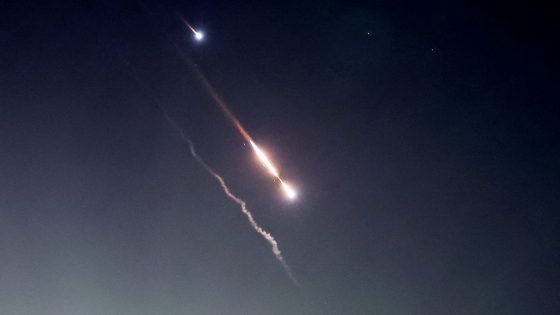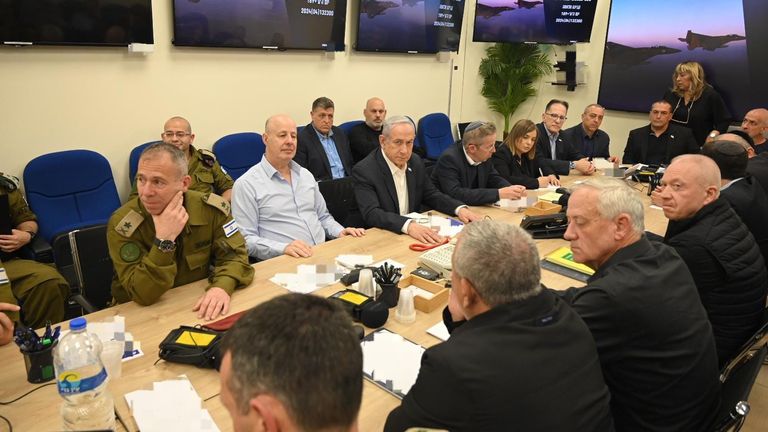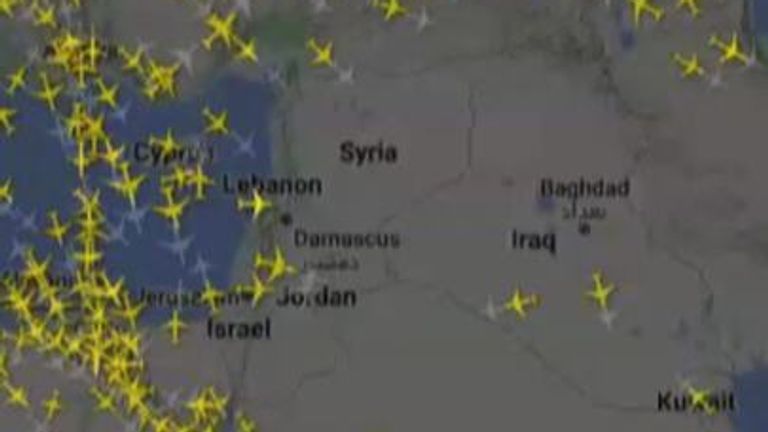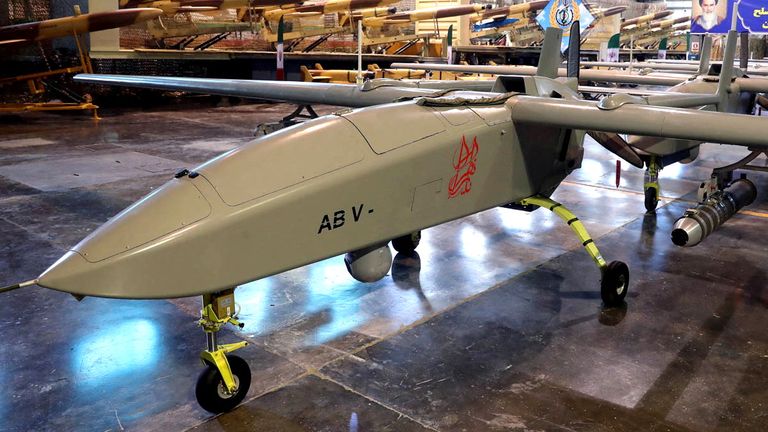Iran has launched an unprecedented drone and missile barrage against Israel – an attack Tehran has labelled as a retaliatory strike.
The move could trigger a major escalation between the countries as tensions in the Middle East remain inflamed over the war in Gaza.
Here’s everything we know so far:
Why has Iran launched an attack?
Iran’s Islamic Revolutionary Guard Corps (IRGC) said it was responding to an “attack on the consular section of the Iranian embassy in Damascus” on 1 April.
Two generals and seven members of the IRGC were killed in the strike, which Tehran blamed on Israel.
Israel has not publicly commented but has been on high alert since the airstrike.
Was it expected?
Iran has repeatedly threatened a response to the Damascus strike – despite warnings from the US against an attack on Israel.
US officials began warning on Friday that an attack from Iran was likely imminent.
Then, on Saturday, a number of countries in the region began shutting their airspace, ahead of the anticipated attack.
Following its launch on Saturday night, Rear Admiral Daniel Hagari also said Israel was “well prepared” for the attack.
What did Iran do?
More than 200 explosive drones were launched by Iran, while 10 cruise missiles were intercepted outside Israel’s borders, according to the IDF.
Drones were seen flying from Iran, through Iraqi airspace and in the direction of Israel, two Iraqi security sources told Reuters.
The drones were carrying 20kg of explosives each, Amos Yadlin, a retired general in the Israeli air force, told Channel 12 TV.
The IDF said Israeli forces had “successfully intercepted” the majority of the launches with its air defence system – as well as with help from its strategic allies – before the drones and missiles reached Israel.
“A small number of hits were identified, including at an IDF base in southern Israel, where minor damage was caused to infrastructure,” the IDF said in a statement.
What has the response been?
Following the launch of the aerial attack, both Israeli Prime Minister Benjamin Netanyahu and US President Joe Biden held emergency meetings with their top officials.
In a statement following the meeting, Mr Biden reaffirmed the US’s “ironclad” commitment to “Israel’s security against threats from Iran and its proxies”.
Early on Sunday morning, a senior Israeli source told Channel 12 TV that the country was planning a “significant response” to the Iranian drone salvo.
Iran’s foreign ministry said Tehran would “not hesitate” to take “further defensive measures” to “safeguard its legitimate interests against any military aggressions”.
Rishi Sunak, the UK’s prime minister, said he condemned “in the strongest terms the Iranian regime’s reckless attack against Israel”.
He was joined in his condemnation by the Foreign Secretary Lord Cameron, Defence Secretary Grant Shapps, and Labour leader Sir Keir Starmer.
Saudi Arabia also called on all parties to exercise the “utmost levels” of restraint and to spare the region and its people the dangers of war, while UN Secretary-General, Antonio Guterres also urged “maximum restraint”.
Was the RAF involved in defending Israel?
Sky News understands that RAF planes were involved in the defence of Israel on Saturday evening, though they are thought to have been used in a support capacity, rather than in any direct action.
Read more from Sky News:
Three sons of Hamas leader killed in Israeli airstrike
Israel’s PM vows Rafah invasion will go ahead
Defence Secretary Mr Shapps said in a statement that additional RAF jets and air refuelling tankers had also been deployed to the region to “bolster” Operation Shader – the UK’s existing counter-IS operation in Iraq and Syria.
“In addition, the jets will intercept airborne attacks within range of our existing missions,” he said.
“I strongly condemn the senseless airborne attack that Iran has launched on Israel. It serves no benefit other than to further undermine regional security.”
Source Agencies










